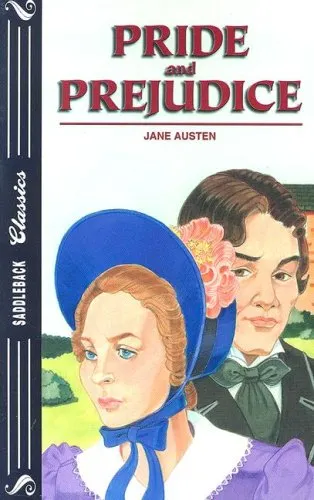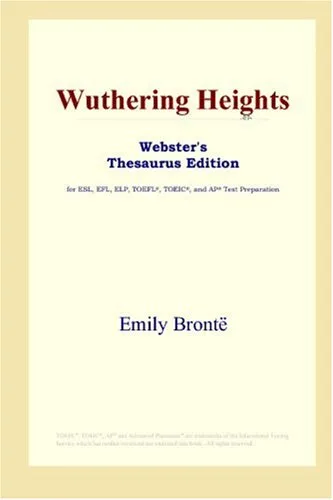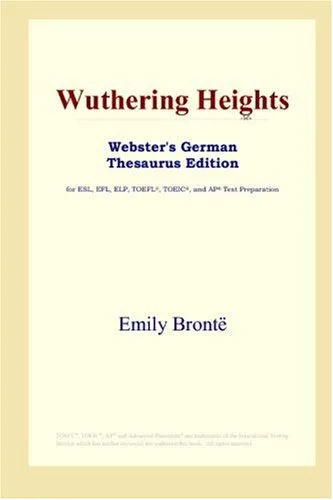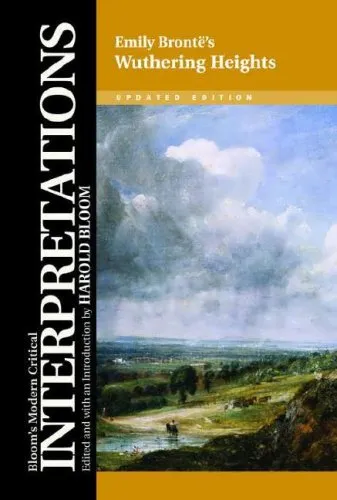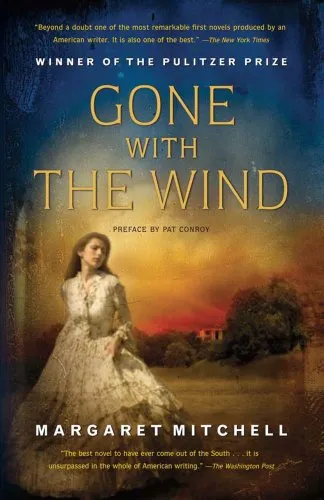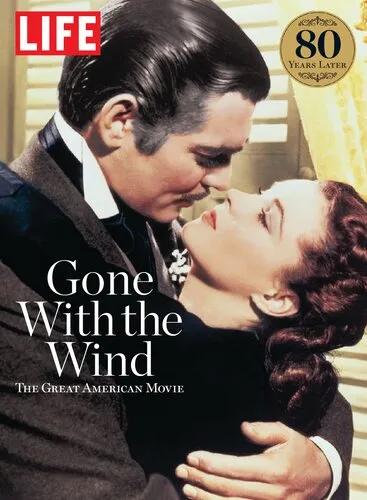Wuthering Heights
3.9
Reviews from our users

You Can Ask your questions from this book's AI after Login
Each download or ask from book AI costs 2 points. To earn more free points, please visit the Points Guide Page and complete some valuable actions.Related Refrences:
Persian Summary
Introduction to Wuthering Heights
Emily Brontë's "Wuthering Heights," first published in 1847 under the pseudonym Ellis Bell, is a timeless classic of English literature. This gothic novel weaves a complex narrative of passion, revenge, and unbridled emotion, set against the haunting backdrop of the Yorkshire moors. Its intricate structure is delivered through unparalleled storytelling, ultimately cementing its place as a profound cultural and literary touchstone.
Detailed Summary
Wuthering Heights is the story of the intense and often destructive relationship between Heathcliff, an orphan brought to Wuthering Heights as a child, and Catherine Earnshaw, his benefactor’s daughter. Heathcliff, after suffering harsh treatment at the hands of Catherine’s brother, Hindley, becomes fiercely entwined with Catherine in a bond driven by both love and vengeance. This connection, however, is fraught with tumult and tragedy.
Narrated by Mr. Lockwood, a tenant at Thrushcross Grange, and through the recollections of Nelly Dean, the housekeeper, the novel traces the intricate web of relationships tied to Wuthering Heights and Thrushcross Grange. The plot spans two generations, showcasing the repercussions of Heathcliff and Catherine’s stormy attachment on their descendants. As Heathcliff seeks revenge on all who wronged him, he ends up sowing discord and chaos across the moorland families.
While the first part of the novel centers on the youthful passions and betrayals, its decades-spanning narrative reveals a saga of reclamation and resolution, providing glimpses of redemption and peace amidst the pervasive strife.
Key Takeaways
- Wuthering Heights is a profound exploration of the human emotions of love, obsession, vengeance, and redemption.
- The novel's setting plays a crucial role, enhancing the dark and brooding tone of the narrative.
- Brontë's use of a complex narrative structure through multiple perspectives adds depth to character development and story arc.
- The book delves into the themes of social class, identity, and the consequences of untamed passion.
Famous Quotes from the Book
"Whatever our souls are made of, his and mine are the same."
"I am Heathcliff! He's always, always in my mind."
"He's more myself than I am. Whatever our souls are made of, his and mine are the same."
Why This Book Matters
Wuthering Heights remains a significant work in literary history due to its daring portrayal of raw human emotion and complexity of character. Brontë's ability to create such a dark yet compelling atmosphere has influenced countless works in the gothic and romantic literary traditions. Scholars often study its intricate narrative, multi-layered plot, and sophisticated character portrayals to gain insights into human psychology and social dynamics.
The novel also stands out as a testament to Brontë's innovative use of structure and literary devices, such as the unreliable narrator. Its unorthodox narrative methods challenge readers to piece together seemingly fragmented accounts into a cohesive, gripping tale of love, revenge, and loss.
Ultimately, "Wuthering Heights" matters because it continues to capture the interests and imaginations of readers with its emotional profundity and robust storytelling. The novel's timeless themes and its ability to invoke deep reflection on the nature of love and redemption ensure its lasting impact in the world of literature.
Free Direct Download
You Can Download this book after Login
Accessing books through legal platforms and public libraries not only supports the rights of authors and publishers but also contributes to the sustainability of reading culture. Before downloading, please take a moment to consider these options.
Find this book on other platforms:
WorldCat helps you find books in libraries worldwide.
See ratings, reviews, and discussions on Goodreads.
Find and buy rare or used books on AbeBooks.
1593
بازدید3.9
امتیاز0
نظر98%
رضایتReviews:
3.9
Based on 0 users review
Questions & Answers
Ask questions about this book or help others by answering
No questions yet. Be the first to ask!

